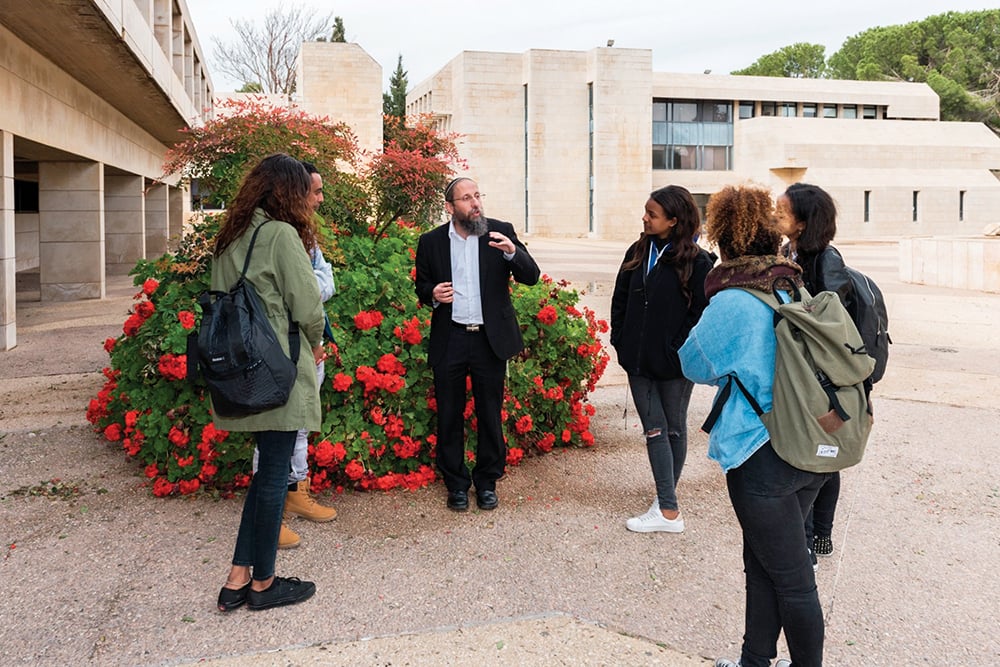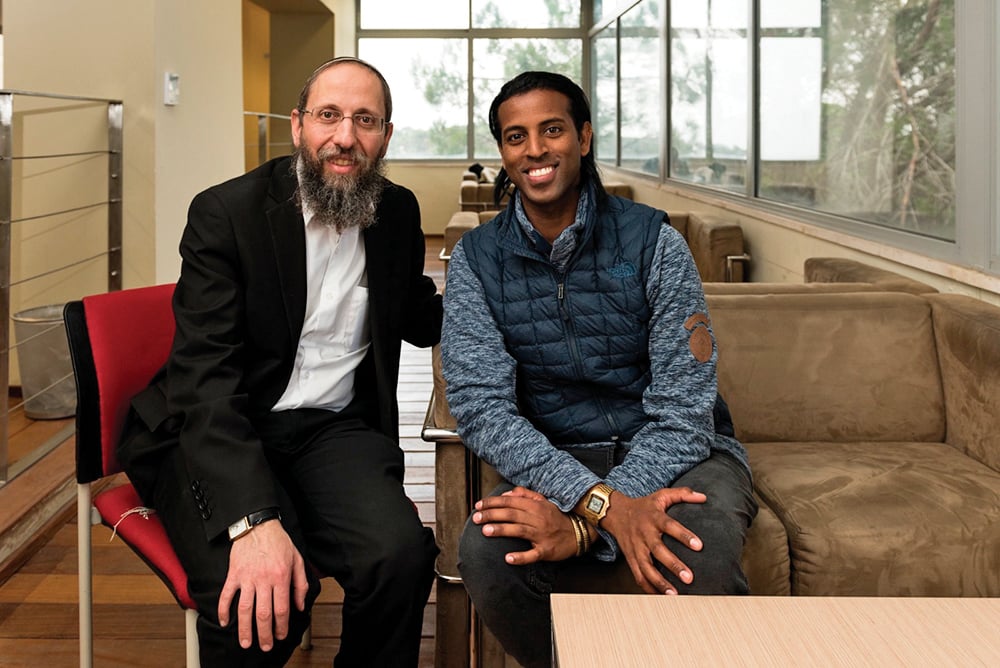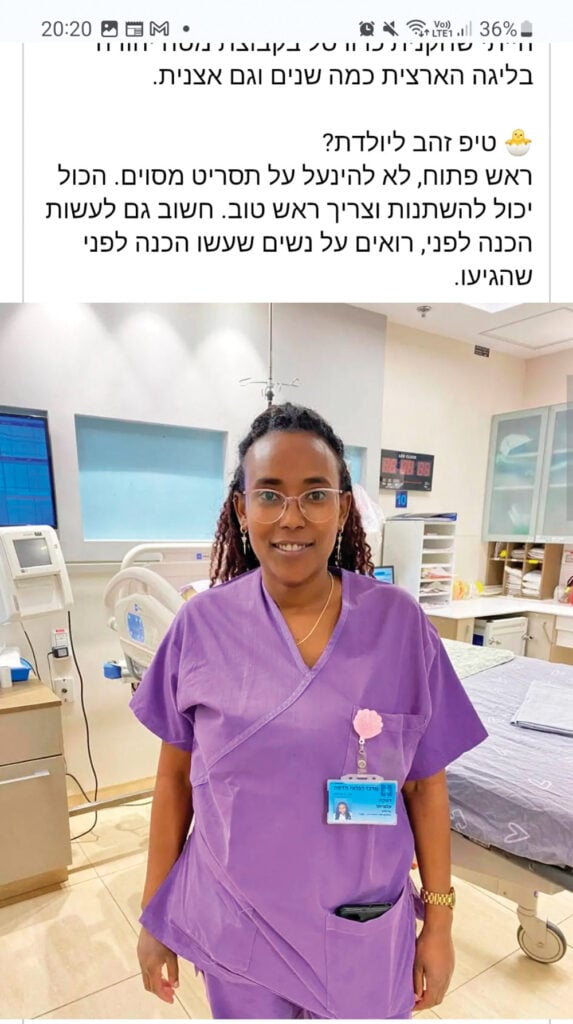
It’s Erev Shabbat in the north of Israel, and Elisha, in his late 20s, is nearly at his parents’ home when he realizes he is about to run out of gas. With a few more hours left to sundown, he should be home in time for Shabbat, but not if he doesn’t find a gas station soon.
Pulling out of another roundabout, Elisha immediately spots a yellow Paz sign in the distance and breathes a sigh of relief at the miracle he has found. He rolls to a stop next to one of the pumps, quickly fills up with gas, and is about to drive away when he sees a woman standing next to a scratched white car, shoulders shaking as she quietly cries.
Elisha can see three children peering out of the back-seat windows at their mother. He gets out of his car again and approaches to ask her what has happened, disheartened by the woman’s obvious distress. Through tears, she explains that she accidentally put diesel in her car, and now the engine will not start.
“Where do you live?” he asks.

“I live in Alei Zahav, in the Shomron,” she replies. “It is three-and-a-half hours’ drive from here, and if I don’t leave soon, I will not make it home for Shabbat.”
“Take my car,” Elisha says immediately. “Take the car right now, and you will reach Alei Zahav before Shabbat.”
She refuses, but he firmly pushes away her concerns that they are strangers, that he will not get home, and finally convinces her to take the car. She thanks him profusely for the miracle she has found, and leaves in his car.
One phone call and a short while later, Elisha’s father picks him up from the gas station, and both families get home on time.
After Shabbat, Elisha’s mother receives a call from the woman, asking what she can buy for Elisha to repay his kindness. “He doesn’t need a present,” his mother replies. “He needs a wife.”
Elisha and Naomi were married a few months later by one Rav Yosef Zvi Rimon, chief rabbi of Gush Etzion, rosh yeshiva of Lev Academic Center (JCT), founder of Sulamot, and founder of La’Ofek. He’s also one of the biggest exponents of chesed in the world today and has created three major initiatives to spread chesed throughout the Jewish community.
Rav Rimon wanted to help people across every denomination of Judaism to actualize more marriages, like Elisha’s. He created the Shagririm Balev project, which matches up Jews from every religious sector, including chardali, torani, mesorati and daklashi affiliated members, and more. Each single who signs up to the program is assigned a shagrir, an ambassador, who asks various questions in a 30-60 minute interview.
Based on their answers, the system’s technology sorts and lists around 20 options for a possible match, which the member and ambassador then narrow down to a potential option. If both sides agree to set up a date, all of their details are sent to each other with just a click of a button—a very user-friendly experience. The ambassadors are there to act as advisors to both sides of the interaction, making the process easy, efficient and tzniut.

Not only are there 10,000 singles now signed up to the program, but 3,000 ambassadors are assisting those singles, and a chatuna occurs every two days, which means 250 matches have been made as a result of Shagririm Balev. Rav Rimon himself has 10 singles whom he plays the role of ambassador to; he has made three weddings so far, and encourages wedding attendees to concentrate their prayers on the single people they know. He is now working on an American version of the program, to globalize these virtuous efforts.
However, Rav Rimon’s history of helping others did not start with shidduchim, or with a gas station, but much earlier. In 2005, the growing community of Gush Katif was uprooted from their homes and lives during the Israeli disengagement from this area. Thousands of families found their large lives crammed into hotel drawers for months at a time and careers entirely put on pause, left to find a new place in the Israeli puzzle.
The day after Tisha B’av that year, a rabbi from Gush Katif called up Rav Rimon, letting him know that in just another day or two, his community members from Gush Katif would be arriving at hotels in the rest of the country. He was concerned that the hotels would not be set up properly for the many families to temporarily stay while they re-established their futures. A quick visit to some hotels showed Rav Rimon this was exactly the case; they were wildly unprepared for the influx of people.
As members of Gush Katif arrived in waves, Rav Rimon set out to help them, gathering thousands of people from all over the country to assist in outfitting these hotels with the right supplies and activities, down to the smallest details, to make these families feel the tiniest bit more at home, so far as they were from their own. They quickly discovered that 85% of the evacuees were now jobless and struggling. Rav Rimon did what he could to find handfuls of jobs in different places, but it wasn’t enough.
In his large-thinking manner, he soon opened the organization JobKatif, not realizing that finding jobs for so many people, many of them over 40 years old, would be a challenging undertaking, especially as 30% of the residents of Gush Katif worked primarily in agriculture, a profession that simply could not support jobs for so many people. The ripples of this cataclysmic period of time still echo nearly 20 years later, and Rav Rimon has not ceased his pursuit of returning purpose and parnasa to those whose trajectories were forever altered by this event in history.
Since its inception, JobKatif has been involved in the opening of 280 businesses and the employment of over 3,500 people, by matching up people with jobs in a major network system.
Shortly after creating JobKatif, Rav Rimon realized he had found a calling to help different communities in Israel that might have been overlooked. JobKatif was thus renamed La’Ofek, to indicate its expanded focus beyond Gush Katif residents. He saw that the Ethiopian community in Israel were uneducated and living in poverty, and rallied his team around the country to give some Ethiopian community members the opportunity to work in a hospital. After a few months, those participating reported that their days working in this stimulating environment had lit passion and excitement within them to learn again and to pursue a nursing education.
Until now, the 520-point minimum on the psychometry seemed implausible, their goal of success unreachable. Rav Rimon was determined to ensure it was neither of those. The Ethiopian participants were tested against a similar test in psychometry. With results in hand that showed no variation in skill from other test takers, Rav Rimon and his team created the program Achotenu, going from school to school, bargaining their way into one, two or three nursing spots at a time for the Ethiopian students, and promising to pay every last fee necessary.
But two months later, the students were failing. Rav Rimon couldn’t understand it. What would he tell his donors? He called one of the students and asked her what was going on.
“Rav Rimon,” she said, “I come into the class to learn, but I go to the back of the room. I don’t want to take up any space in the front. But … I just can’t see the board, and my grades are suffering.”
A few phone calls gave Rav Rimon the same input from the rest of the students, even spread out in different schools. He promised to get them glasses if needed, but he also made them promise that in return, they would sit in the front of the classroom and learn unhindered, as they deserved to do. Every single one of those students passed through to become nurses, two even at the top of the class. Achotenu boasts approximately 130 students since its inception, with around 60 graduates currently working as nurses. Still 100 more are learning nursing at Hebrew University, with other programs underway.
It’s one thing to notice a problem. It’s another thing to come up with a solution. It’s something different altogether to continue to notice serious societal problems … and then take meaningful steps to solve them. That’s what sets Rav Rimon apart and makes him a chesed hero for the rest of us.












